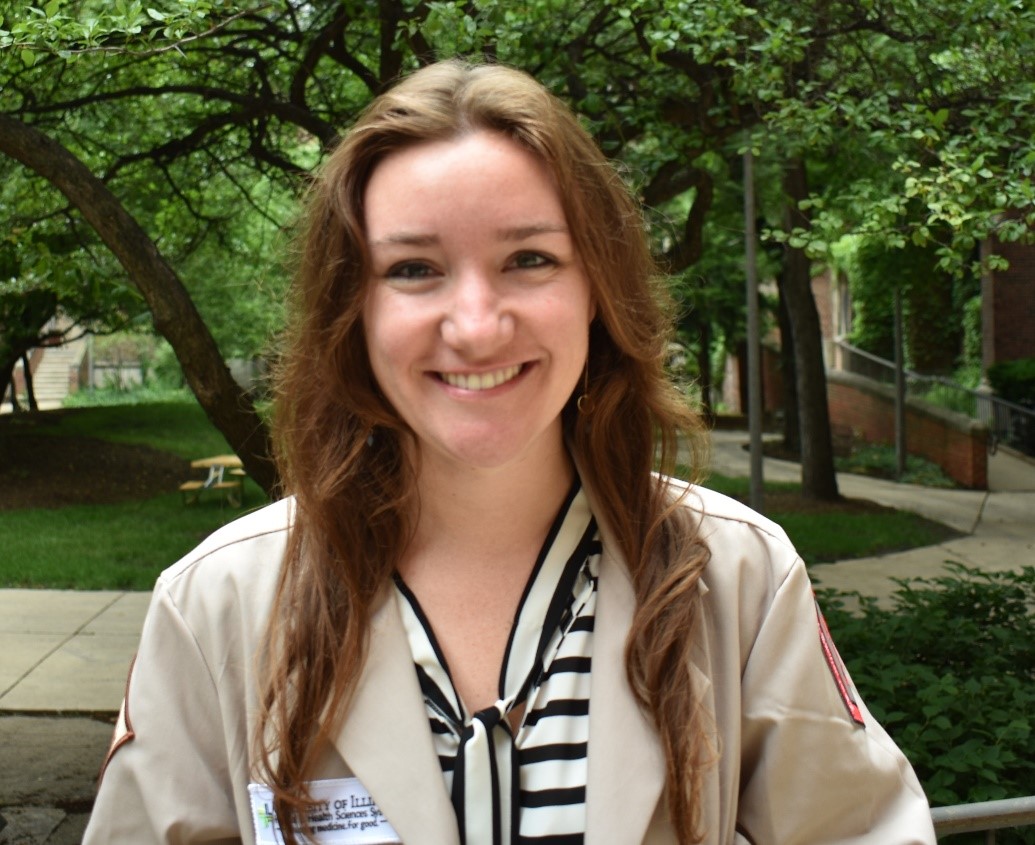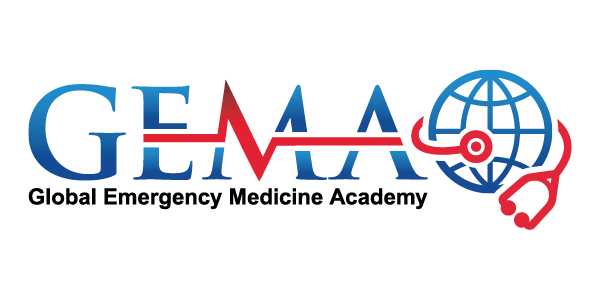UNIVERSITY OF ILLINOIS AT CHICAGO (UIC) SOCIAL AND GLOBAL EMERGENCY MEDICINE FELLOWSHIP

Our History
The University of Illinois has a legacy of training EM physicians in health equity. Recognizing health disparities throughout the world, in 1995, UIC was the first institution to introduce a fellowship in International Emergency Medicine. As the field of Global Emergency Medicine developed, our program has offered high-quality training and mentorship to help fellows build skills in partnering and collaboration, program management, care delivery, education, ethical research, and capacity building for almost 30 years, with the aim of improving health equity.
UIC also has a long-standing commitment to building health equity in our Chicago community. We are engaged in research to promote prevention, initiatives to address Social Determinants of Health (SDoH) and health risk factors, community engagement and education activities, and local, state, and national policy and advocacy efforts to use our position in Emergency Medicine to develop systematic community-based interventions that will improve health for all.
With this rich experience in local and global health equity programs, we offer a Social and Global Emergency Medicine Fellowship that trains future leaders in health equity, focusing on the intersection of emergency medicine, individual health, and population health. Building on UIC’s long-standing experience and diverse expertise of faculty mentors, our Fellowship offers flexibility for Emergency Physicians seeking training to become health equity leaders, whether they focus on local or global community work, or have overlapping interests.
Fellowship Goals
As a result of participating in this fellowship, learners will:
Understand and apply the concepts of public and community health to better meet the complex needs of patients with acute illness and injury.
Develop the ability to assess health systems and emergency medical care and identify pertinent health issues to aid in the design of health programs that address identified needs.
Develop the knowledge and skills to educate students, trainees, and faculty on concepts in health equity that will help build an EM workforce that can better address SDoH and community health, build health systems, and improve illness prevention and health equity.
Establish a network for educational exchange, research, and funding in the field of health equity.
Build administrative skills to organize and implement health equity, Social EM, and Global EM programs and integrate them into existing health systems.
Fellowship Experience
Program Structure
Fellows obtain their Masters in Public Health or another advanced degree while working clinically and participating in numerous EM health equity initiatives. Fellows are mentored by faculty from the Department of Emergency Medicine and multi-disciplinary faculty from UI Health, the UI College of Medicine, the UIC School of Public Health, and the UIC Center for Global Health.
Duration
The fellowship is a two-year program which incorporates the advanced degree, clinical and teaching responsibilities, health equity research, project-based and community engagement work as above. A one year fellowship is possible for those who have already received their MPH degree at the discretion of the Fellowship Directors.



Fellowship Curriculum
The structure of the fellowship is divided into seven general areas. Fellows are afforded flexibility within these areas to focus their health equity work in domestic or international contexts.
1. Clinical
The fellow will work as clinical faculty with an academic appointment (Clinical Instructor) in the Emergency Department at UI Health and an affiliated community hospital. The fellow will be responsible for clinical work in the ED and clinical training and supervision of medical students and residents. Clinical duty hours required are 576 annually or approximately 16 hours per week.
In addition to direct patient care, fellows will gain exposure to emergency patient health issues from a health delivery perspective, gain a greater understanding of urban populations and motivations for seeking care, and gain knowledge surrounding challenges in navigating the U.S. health system at urban academic and community hospitals. Fellows will also gain experience working with vulnerable communities - including immigrant populations, limited English-proficiency patients, and patients experiencing homelessness, food insecurity, substance use disorders, financial insecurity, un- or under-insured, and victims of intimate partner violence or abuse.
2. Education/Didactic Learning
Each fellow will complete a Masters in Public Health (or similar advanced degree related to health equity e.g. Masters of Clinical and Translational Science) at the UIC School of Public Health (SPH). The Masters concentration will be tailored to the fellow’s interests which could include Community Health Sciences, Health Policy and Administration, Public Health Informatics, Maternal and Child Health, and others. A Certificate in Global Public Health is offered as part of the MPH program for interested candidates.
As part of the MPH degree, fellows must complete both an Applied Practice Experience and an Integrative Learning Experience that may take many forms such as a policy brief, evaluation/research report, community health assessment, program evaluation, strategic plan, or intervention plan, in an area related to health equity and public health. Through the MPH, fellows will gain experience working in interdisciplinary teams, essential for future practice in health equity.
Fellows will also participate in monthly journal club review and discussions with the national SAEM/ACEP Social or Global EM Journal Clubs.
3. Research
The UIC Department of Emergency Medicine, UI College of Medicine, and UIC Center for Global Health have robust research programs, including many funded grant studies and health equity research with an emphasis on disease screening and prevention, investigating social determinants of health, and designing systemic interventions to improve community and population health. EM research topics include investigating chronic disease screening and prevention, cardiovascular disease, diabetes, hypertension, sickle cell disease, COVID, health education, health disparities, substance use disorder, and homelessness, among others.
Research skills are critical to working in health equity, to build knowledge of effective interventions that address community health and the social determinants of health. Fellows will participate in a research project by either developing an original idea into a project or working on an ongoing project. Fellows will also have opportunities to participate in grant writing, writing IRB applications, project design and implementation, data collection and analysis, and manuscript writing. Fellows will develop and submit an abstract on a health equity research topic to a national conference.
4. Health Policy and Advocacy
UI Health faculty serve in leadership positions with the Chicago Department of Public Health and numerous policy and advocacy organizations including the Illinois College of Emergency Physicians (ICEP), the American College of Emergency Physicians (ACEP), and the Society for Academic Emergency Medicine (SAEM). Fellows will participate in health equity, social EM, or global EM committee work with a policy or advocacy organization in order to develop skills in leadership, communication, education, and advocacy for practice changes related to health equity. Fellows will also receive training in writing Op-Eds.
Fellows will write an Op-Ed or contribute to a Social EM or Global Health podcast.
5. Teaching
As teaching faculty in a large residency program, fellows will be required to work directly with residents in the UIC Emergency Medicine Social EM track or Graduate Global Health Program to plan, develop, and deliver educational content related to health equity. This may include case studies, lectures, simulation sessions, FOAM materials, or other educational products, in order to educate trainees and ensure that all UIC EM trainees will have foundational knowledge of issues surrounding health equity. Fellows will also be required to work with residents to develop an annual Social or Global EM focused journal club. Additionally, fellows will also have the opportunity to teach UI COM medical students via medical colloquia workshops or partnering with Simulation and Integrative Learning (SAIL) Center staff.
6. Community Service and Engagement
In order to foster community engagement between UI Health and local and global communities, and better understand the SDoH affecting emergency patients, fellows will work with a local or global community-based organization addressing a topic related to health equity. Current initiatives include Illinois Heart Rescue, the Community Health And eMPowerment through Integration Of Neighborhood-specific Strategies using a Novel Education & Technology-leveraged Workforce (CHAMPIONS NETWork), the Night Ministry, Chicago Street Medicine, Global Emergency Care, MedGlobal, numerous programs with the UIC Office of Community Engagement and Neighborhood Health Partnerships (OCEAN), or others.
7. Quality Improvement
UI Health has instituted a social determinants screening tool using the Epic electronic health record system. The Department of Emergency Medicine also has a quality improvement (QI) team and social workers, care coordinators, and discharge planners who assist emergency patients with issues including: home health needs; access to prescription medications, medical supplies/hardware, transport needs, access to outpatient services, etc. Additionally, UIC EM faculty have partners working in nascent global EM programs and departments.
Utilizing these resources, fellows will investigate, design, and implement a systems-based practice initiative in an area of health equity designed to improve quality care for emergency patients.
International Fieldwork
Fellows interested in Global EM may complete work in the core areas identified above through a combination of local, international, or virtual international experiences. International fieldwork could include provision of emergency care, research, teaching/training, public health interventions, and disaster and humanitarian response. Depending upon coursework and clinical work responsibilities, the fellow may have up to 4-5 months of international experience with fieldwork length varying from 1 to 8 weeks at a time. International fieldwork is generally arranged by the fellow, with supervision of the Fellowship Directors. Fellows may participate in ongoing global health initiatives with multidisciplinary faculty from UIC and partner institutions, and/or fellows may suggest independent projects.
Projects
| Project Name & Description | Details |
|---|---|
| Worldwide Projects |
UIC has a multidiscliplinary Center for Global Health with faculty working on active projects globally including projects (in addition to the ones already listed) in Ethiopia, Kosovo, Tajikistan, Nepal, Peru, Bolivia, Cuba, Nigeria, Ghana, Senegal, the Dominican Republic, Thailand, and Vietnam among others. Fellows have abundant opportunities to collaborate with global health faculty on these initiatives.
|
Alumni

Naina Bhalla

Renee King

Janet Lin

David Townes

Vinay Mikkilineni

Jason Murphy

Cindy Bitter

Asim Sheriff

Vinoo Dissanayake

Toni Biskup

Deborah Kleiman

Kristiana Kaufmann

Eugene Oh

Stacey Chamberlain

Cecilia Cruz

Robert Furno

Contacts

Additional Application / Interview Information
Application Criteria
The UIC Emergency Medicine Social and Emergency Medicine Fellowship accepts ABEM board-certified or board-eligible emergency physicians who are U.S. citizens, have permanent resident status, or are DACA recipients.
Application Process
Application Process
Interested applicants should send an electronic copy of the following to the Program Co-Director, Dr. Stacey Chamberlain, at staceymd@uic.edu by September 30th.
-
A letter of intent (this should be one-page describing why you seek a Fellowship specifically at UIC and what makes you a good fit for this program)
-
A personal statement (this should describe your interest and background in health equity, Social EM, or Global Health/EM work)
-
A curriculum vitae
-
Three letters of recommendation (at least one from your EM residency Program Director)
Important Dates
Application Deadline
Interview Date
Eligibility
The UIC Emergency Medicine Social and Emergency Medicine Fellowship accepts ABEM board-certified or board-eligible emergency physicians who are U.S. citizens, have permanent resident status, or are DACA recipients.

